”I’m bad, and that’s good.
I will never be good, and that’s not bad“
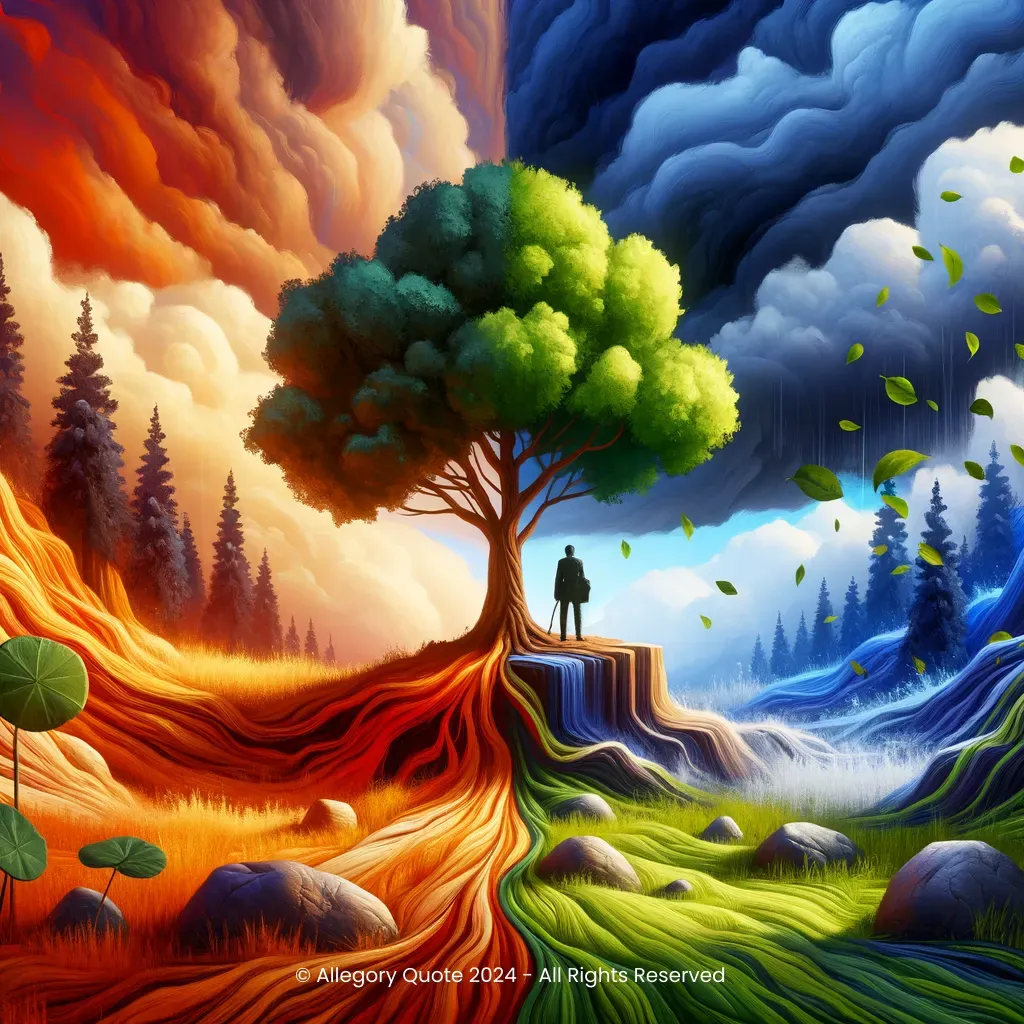
0
0
0
0
- Meaning
- The meaning of this phrase embodies themes of self-acceptance and the complexity of identity. Philosophically, it suggests that people often classify themselves based on societal norms (like being 'good' or 'bad'). However, Ralph’s recognition that being 'bad' is part of who he is allows for personal growth and acceptance, inviting a more nuanced view of identity that defies binary categorizations. Psychologically, it speaks to embracing one’s flaws as fundamental aspects of oneself rather than as total failures, contributing to overall well-being and self-esteem.
- Allegory
- The image features a character at the forefront, symbolizing self-acceptance and confidence, with a bright, colorful landscape that represents the vibrancy of embracing one's true self. The vivid contrasts of light and shadow symbolize the duality of existence—where both the 'good' and 'bad' coexist. The tree growing from the rocky cliff conveys resilience, illustrating that growth can emerge even from challenging circumstances. The serene colors evoke feelings of calm and joy, promoting an understanding of the journey toward self-discovery and acceptance.
- Applicability
- This phrase can be applied to personal life by encouraging individuals to accept their imperfections and recognize the value in being true to themselves. It teaches that it's okay to have flaws and that those do not diminish one’s worth. By embracing one's identity, regardless of external labels, one can lead a more fulfilling life, catalyzing authenticity and resilience in the face of societal pressures.
- Impact
- The phrase has significantly impacted popular culture, particularly in discussions on self-identity and acceptance. It has resonated with viewers who see themselves in Ralph's struggles, inspiring movements related to mental health and self-acceptance. It's often cited in contexts where discussing the importance of embracing one’s true self, and it has inspired discussions about the roles that individuals play in society, especially those often marginalized or viewed negatively.
- Historical Context
- The phrase was coined around 2012 during the production of "Wreck-It Ralph." The film emerged in a cultural milieu that was increasingly focused on themes of individual identity, acceptance, and the story arcs of 'villains' becoming heroes, reflecting changing perceptions in media and society.
- Criticisms
- Some criticisms arise from the interpretation of the phrase as endorsing negative behavior or a resignation to being 'bad.' Opponents might argue that it could diminish personal responsibility or suggest that self-acceptance can sometimes lead to complacency rather than growth. Response to this might emphasize that self-acceptance does not equate to foregoing self-improvement but rather recognizing one’s starting point for genuine change.
- Variations
- Variations of this phrase can be found in multiple cultures that embrace the nuance between good and evil; for example, in Eastern philosophies where dualism is often discussed, such as "The duality of existence is inherent in nature," recognizing that both aspects coexist in life. These variations often emphasize respect for the complexity of human nature.
-
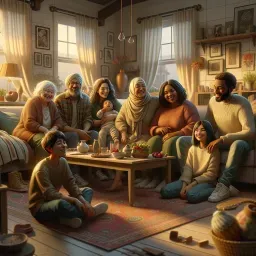
This is my family. I found it, all on my own. It’s little and broken, but still good. Yeah, still good.
-

Float like a Cadillac, sting like a Beemer.
-
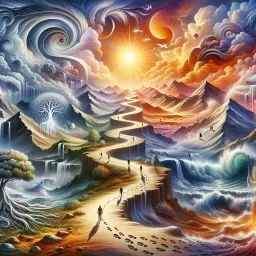
You’re only a fool if you give up.
-
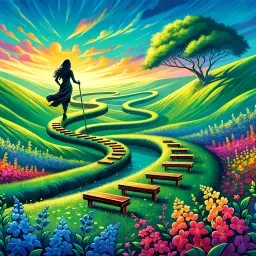
Keep moving forward.
-

Today is a good day to try.
-
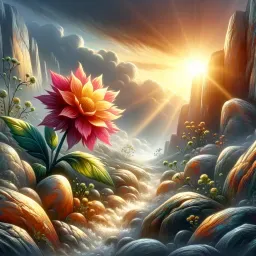
The flower that blooms in adversity is the most rare and beautiful of all.
-
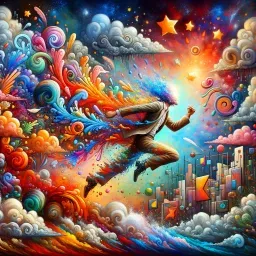
I’m gonna wreck it!
-
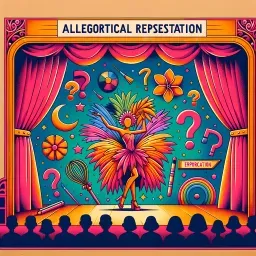
What do you want me to do, dress in drag and do the hula?
-
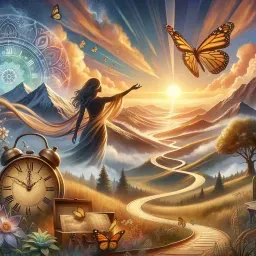
Seize your moment.
-
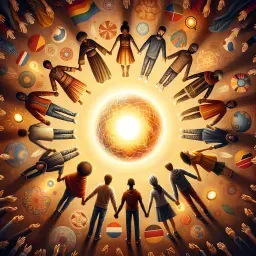
Nobody gets left behind.
-
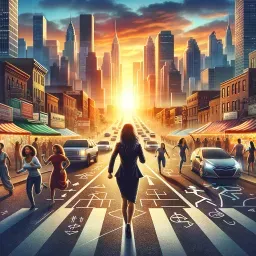
It’s called a hustle, sweetheart.
-
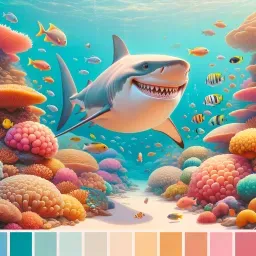
Fish are friends, not food.
No Comments